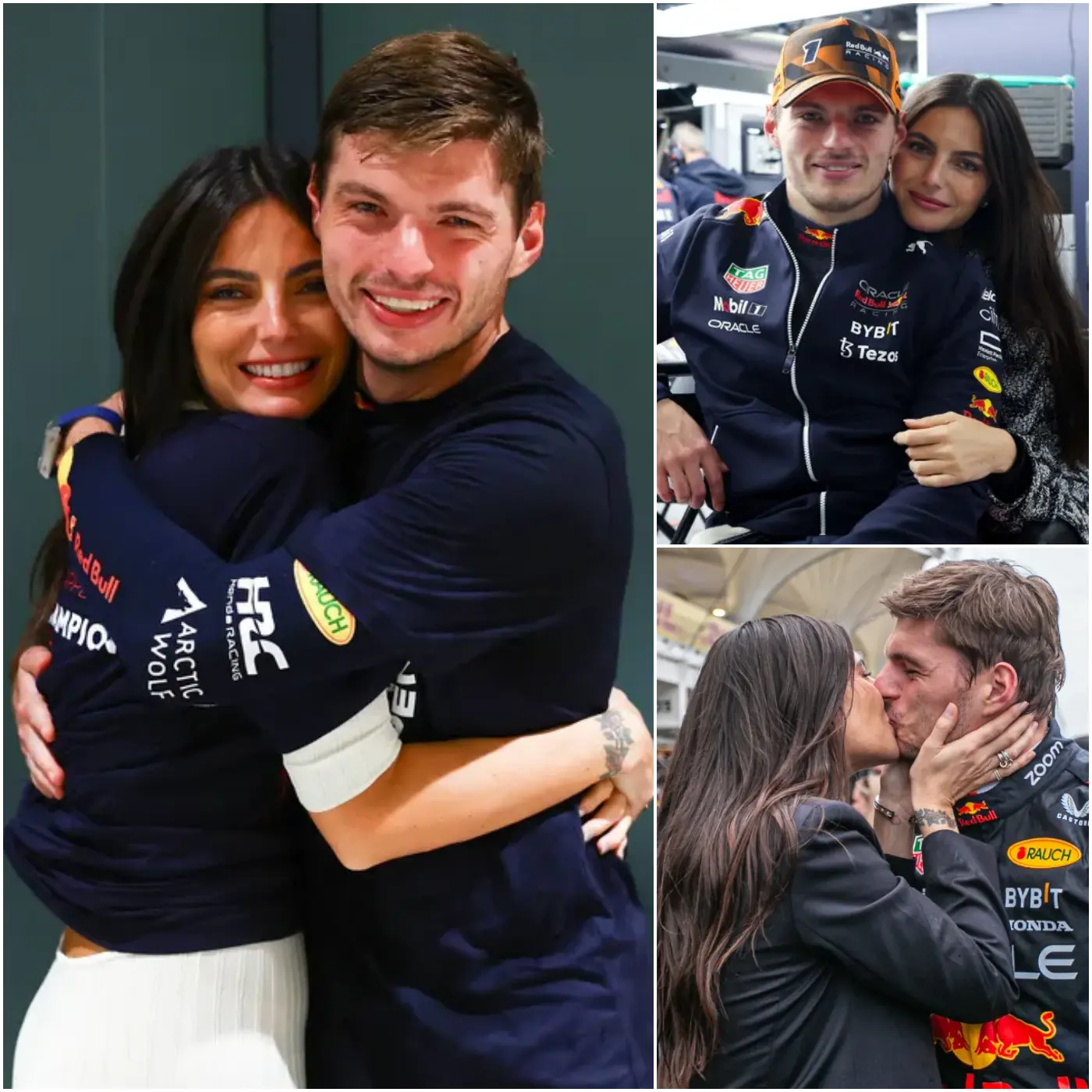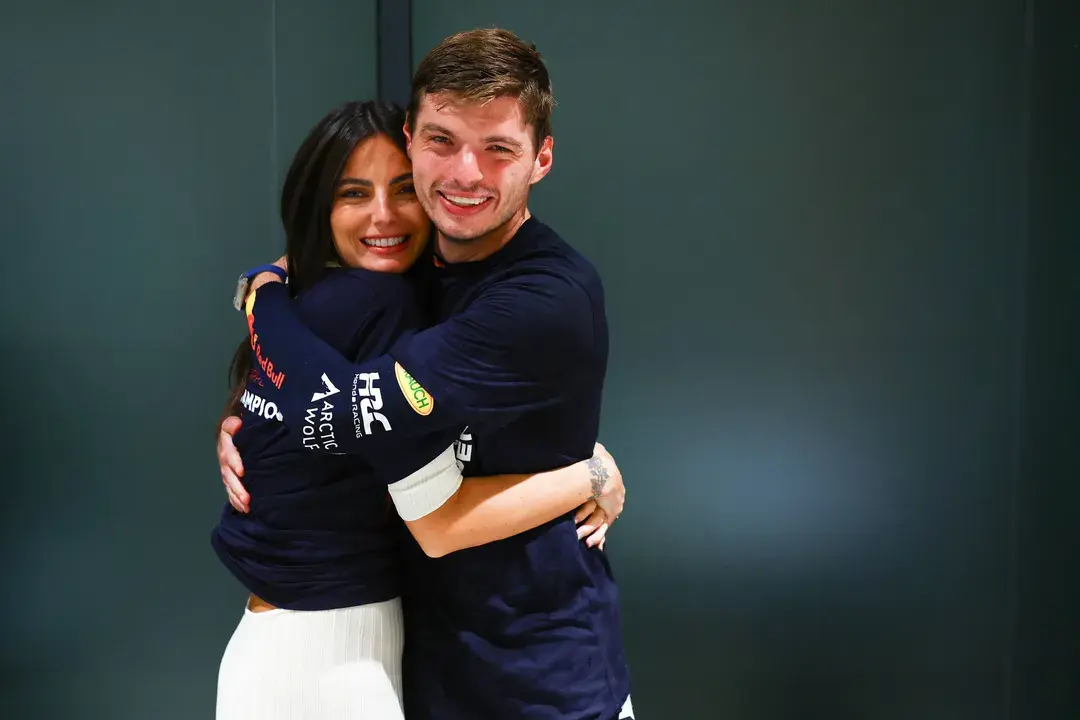Before the United States Grand Prix, Kelly Piquet surprised Max Verstappen by giving him a red thread bracelet representing her Dutch heritage. She said, “This bracelet reminds you of your family. I want you to keep it so that tomorrow, when you go out on the track, you can feel that your family is always with you.” This small but heartfelt gesture deeply moved Verstappen. He responded with a simple yet meaningful gesture, causing the audience to erupt in endless applause.

In the world of Formula 1, emotions often run high, and victories are measured not only by lap times and championship points but also by the human connections that define the sport. One of the most touching moments of the recent United States Grand Prix came not on the track, but in the quiet, personal interaction between Max Verstappen, the reigning champion, and Kelly Piquet, his longtime partner and a familiar presence in the Formula 1 paddock. Their interaction highlights how the pressures of high-speed racing are often balanced by personal support systems that keep drivers grounded.

Max Verstappen, known for his fierce competitiveness and relentless drive, often appears unshakable in the cockpit. Yet behind that stoic exterior lies a human being who, like everyone else, values the gestures of care and encouragement from loved ones. Kelly Piquet’s decision to present Verstappen with a red thread bracelet, symbolizing her Dutch heritage, carried profound meaning. The gift was more than a decorative token; it was a symbol of connection, trust, and family, reminding Verstappen that no matter how intense the pressures of the race weekend, he was never truly alone.

The gesture came at a particularly significant moment. As the United States Grand Prix approached, the anticipation in the Formula 1 community was palpable. Fans around the world were eager to see Verstappen defend his position at the top of the standings, and the media coverage added layers of scrutiny that could weigh heavily on any driver. In such a high-pressure environment, small acts of emotional support can be as critical as technical adjustments to the car or strategy calls from the pit wall. By giving Verstappen the bracelet, Piquet provided him with a mental anchor, a reminder of stability amidst the chaos of competition.
Verstappen’s reaction was immediate and heartfelt. While words were not needed to express his gratitude, his response was visible and genuine. He responded with a simple but profoundly human gesture, acknowledging the thoughtfulness and care behind the gift. This response resonated not only with those in the paddock but also with fans watching worldwide. In a sport often dominated by statistics, podiums, and championship points, moments like these remind audiences that the human element of racing—the relationships, trust, and emotional bonds—is just as significant as the competition itself.
The impact of this interaction went beyond the immediate parties involved. Social media quickly buzzed with photos and videos of Verstappen receiving the bracelet, accompanied by commentary praising the emotional depth of the gesture. Fans celebrated not only the competitiveness of Verstappen on track but also the human side of the sport, emphasizing that Formula 1 athletes are not just machines of speed but also individuals with emotions, families, and personal lives. In a world where every action is scrutinized, it was refreshing to witness a moment defined purely by compassion and care.
Furthermore, the red thread bracelet itself carries a symbolic resonance. In many cultures, red threads are believed to represent protection, luck, and connection. By choosing such a symbolic item, Kelly Piquet amplified the meaning behind her gift. Verstappen was not only reminded of her support but also of the broader idea of familial and emotional bonds that can provide strength in moments of pressure and uncertainty. This symbolic reinforcement likely contributed to Verstappen’s calm and focused performance during the race weekend, demonstrating the intricate relationship between emotional well-being and peak athletic performance.
As the United States Grand Prix unfolded, Verstappen’s focus and determination were evident on the track. While spectators celebrated his technical skills and strategic brilliance, the story of the bracelet quietly underscored a key truth about elite sports: emotional support and personal relationships are crucial factors in sustaining excellence. Drivers like Verstappen often credit family, partners, and mentors for their ability to maintain composure, focus, and resilience under extreme conditions. This instance with Kelly Piquet exemplifies that principle vividly.
In conclusion, the moment when Kelly Piquet gave Max Verstappen a red thread bracelet before the United States Grand Prix transcends the usual narratives of victory, speed, and championship points. It serves as a powerful reminder that Formula 1, for all its technical precision and high-octane excitement, is also a deeply human sport. Relationships, support, and emotional connection matter just as much as strategy and skill. Verstappen’s heartfelt response and the overwhelming applause from fans and spectators alike highlight the universal resonance of compassion, care, and human connection in even the most competitive arenas. This gesture, small yet meaningful, will be remembered as one of the most touching off-track moments in Formula 1 history, illustrating that behind every champion, there is a network of support that fuels not just performance, but humanity.
This story is a testament to the power of small, thoughtful gestures in a high-pressure world, showing that even in Formula 1, where milliseconds can define careers, human connection remains irreplaceable. The red thread bracelet and Verstappen’s response will likely be celebrated for years to come as a symbol of care, love, and the quiet strength that supports greatness.